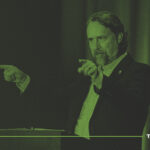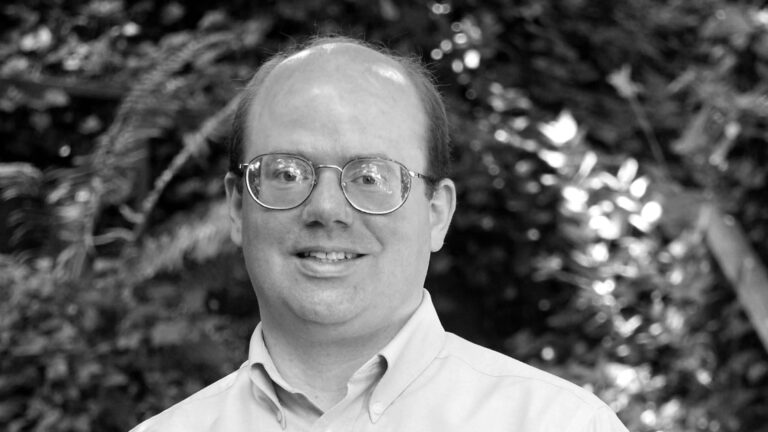Billy Graham died February 21, 2018, at 99 years old. He will be remembered as perhaps the most influential Christian of the 20th century, maybe even the most successful evangelist since the biblical era. Even beyond these headlines, Graham’s influence can still be seen in various realms, even where many do not realize and remember. No one offered spiritual counsel to more U.S. presidents, from Truman through Obama. No one spoke to bigger crowds as he energized an emerging global evangelicalism. And no one was so beloved in America’s largest Protestant denomination, the Southern Baptist Convention.
Russell Moore on Graham’s influence on Politics and Presidents (1:48)
Known as “Preacher to the Presidents,” Billy Graham met personally with every American president since Harry Truman. As Russell Moore, president of the Southern Baptist Ethics and Religious Liberty Commission, recounts in this interview, many of those meetings were much more than token get-togethers. Graham served as spiritual adviser and comforter to Lyndon B. Johnson and Bill Clinton during the darkest moments of their presidencies, was an encouraging presence with George H. W. Bush and George W. Bush on the eves of their most solemn decisions, and even provided high-level political advice to the president with whom Moore says he was closest: Richard Nixon.
Moore says the Nixon presidency “burned” Graham on many fronts and changed the way the evangelist related to those in political power for the rest of his ministry. Yet Graham never failed to recognize and minister to the humanity of people in power, Moore says, viewing it as part of the charge God had given him. Moore also remembers how Billy Graham offered similar solace to the entire country after national tragedies, and discusses why Graham largely steered clear of the Religious Right, and explains how he outlasted his critics on both the theological left and right.
Mark Noll on Graham’s Global Reach (15:04)
While Billy Graham’s American legacy has been explored and evaluated in some depth, the evangelist’s global influence has yet to be sufficiently researched and determined. So says Mark Noll, former professor of history at the University of Notre Dame, in this 14-minute interview. That said, Noll believes we can safely say Graham became more of an international figure as his ministry progressed and was intentional about being a helpful presence in furthering the message of the gospel worldwide.
Noll says Graham’s international appeal was to some degree a result of the evangelist’s winsome and positive presentation of the gospel, which Noll praises as bringing “little unneeded offense.” In addition to the many souls saved through his preaching, Noll also credits Graham for having a significant effect on human rights by encouraging those behind the Iron Curtain with his presence there during the Cold War. Noll does not see Graham as an equal to Pope John Paul II in this regard, but believes Graham was among the key Westerners whose spiritual encouragement helped pave the way for the significant human-rights advances to come.
Timothy George on Graham’s Leadership in the Southern Baptist Convention (29:17)
Billy Graham is most widely known and remembered as an international evangelist, but he was also an ordained Southern Baptist minister. In this nine-minute interview, Timothy George, dean of Beeson Divinity School at Samford University, looks back on Graham’s influence within the Southern Baptist Convention. Among other accomplishments, George says Graham’s insistence on integrated crusades (the first of which George says he actually attended in Chattanooga, Tennessee, in the early 1950s) helped change the hearts and minds of Southern Baptists—including celebrated former SBC president W. A. Criswell—on the issue of segregation.
On evangelism in general, George sees Graham not so much as an innovator but rather, in terms of style and approach, as a mass media age successor to D. L. Moody. George also refutes speculation that Graham—near the end of his ministry—became an inclusivist, saying that Graham always believed trust in Jesus Christ to be the only means of salvation but may have misspoken out of a “generosity of heart” and desire to never “put God in a box.”
Related:
“The Most Practical and Engaging Book on Christian Living Apart from the Bible”
 “If you’re going to read just one book on Christian living and how the gospel can be applied in your life, let this be your book.”—Elisa dos Santos, Amazon reviewer.
“If you’re going to read just one book on Christian living and how the gospel can be applied in your life, let this be your book.”—Elisa dos Santos, Amazon reviewer.
In this book, seasoned church planter Jeff Vanderstelt argues that you need to become “gospel fluent”—to think about your life through the truth of the gospel and rehearse it to yourself and others.
We’re delighted to offer the Gospel Fluency: Speaking the Truths of Jesus into the Everyday Stuff of Life ebook (Crossway) to you for FREE today. Click this link to get instant access to a resource that will help you apply the gospel more confidently to every area of your life.


































